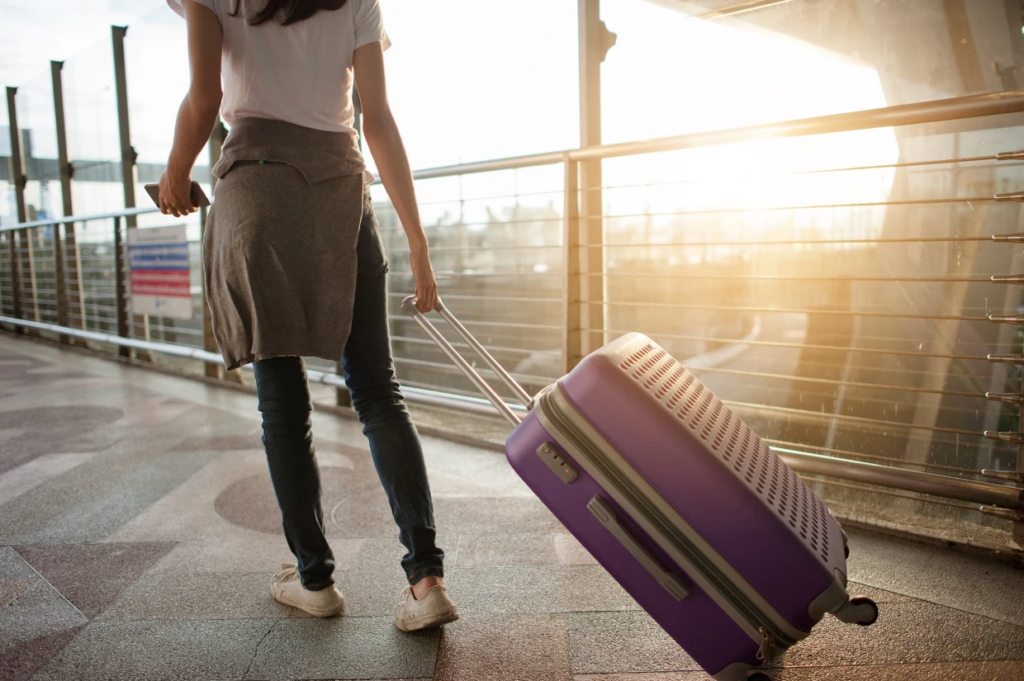Approximately 35,000 feet in the air and headed 3,000 miles away from home, I was ready to immerse myself into idiosyncratic Portland, Oregon culture for the five days with nothing more than a backpack full of clothes. Even though this was a seemingly elementary trip, my brain kept wrestling over and over with this errant decision to pick a place on the U.S. map and book a flight. I had never been to the West Coast and had certainly never traveled by myself. But I was desperate to make a change in my life.

At the time (two years ago), I was living in a cyclical panic of late twenties depression fueled by zero money, no upward job mobility, and a recurring internal alarm whenever a person would walk too close to me or I would wind up in a room without a quick escape. My anxiety was becoming a massive structure that I couldn’t scale (or treat due to the job situation), and I was finding it hard to see the positives in the world around me. It was truly exhausting trying to navigate these symptoms that kept me from much at all — nonetheless travel. In the most self-actualizing of efforts, I decided that I needed to live like another person for a few days. Cue the solo travel.
Travelling Solo: An Exercise in Self-Confidence
I did a quick search for travel-friendly cities and landed in Portland, Oregon. The decision shot a nervous pang throughout my body even though it was very much the perfect city to escape to: public transit, cool art, and food trucks. Still, my anxiety wouldn’t let me forget that I was going to be alone across the country while having to navigate my anxiety in a brand new setting with known triggers (meeting new people, eating alone, not being in full control).
“There is a really wonderful circular relationship between self-esteem and traveling. Traveling in itself is an act of confidence. The fact that you went somewhere by yourself demonstrates strength,” says licensed psychologist Dr. Chloe Carmichael Peet. “If you do something that requires a certain amount of strength or independence, you then see yourself as a stronger and more independent person. Your behavior is reinforcing a positive self-esteem. As your self-esteem grows, you start engaging in more independent, self-serving behaviors.”
Truthfully, I couldn’t pinpoint where the travel antidote came from. Images of happy women taking charge of their lives stamped an impression into my brain of the person I wanted to be, but felt I couldn’t — a woman who can pick up and go and feel confident in all of her decisions. I am, perhaps, the Diane Lane or Julia Roberts of the modern millennial woman — except without a closet full of tans and taupes to pass through metal detectors on my introspective journey.

Finding the Power in Being Alone
Previously, the idea of me getting on a plane and flying anywhere seemed far away from any agency I’d allow myself to have. Cool girls with bottomless bank accounts take weekend solo trips — certainly not me: a person forever amidst an adult acne breakout with mmmaaaayyyybbbbeeeee $200 to her name at any given time. Plus, there is the inherent risks of traveling by yourself. There is no one to hold you accountable for missteps, help you map out each destination, gut check you if you happen to stray into an unsavory bar or whisk you away to the restroom to tell you the guy you’ve been chatting with has murdery vibes. You are the only line of defense against the elements.
That first time, I sat in the airport Dunkin Donuts for one full hour before I could peel myself away from the terminal and make my way to my Airbnb. Walking outside would mean I’d leave the safety of my bacon, egg and cheese to immerse myself in the surroundings of the pacific-northwest. I felt more alone than I ever have in my entire life — almost as if everyone in that airport could tell I was cowering behind my breakfast sandwich in fear. “Many people feel uncomfortable being alone in general, and especially in public. They may feel that others are judging them and they tend to overestimate how much they stick out to others and how unusual it is to be by yourself,” says licensed psychologist Dr. Margot Levin.